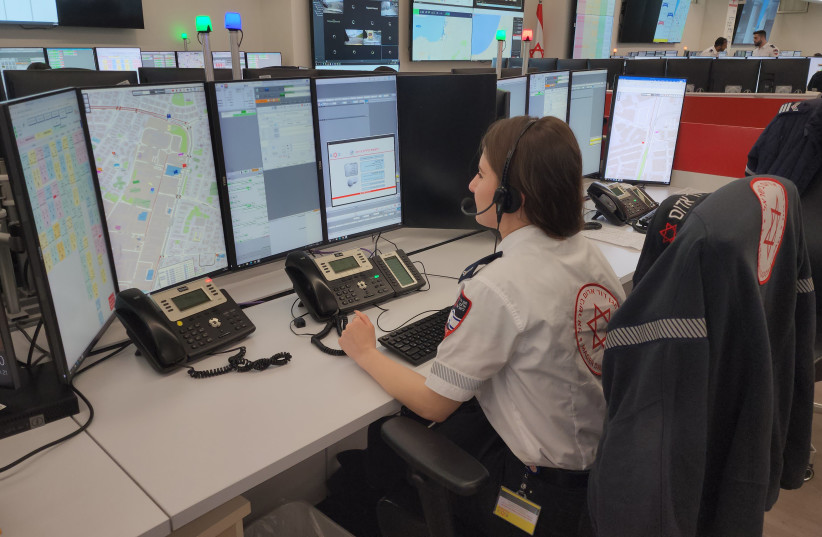When Linoy El-Ezra arrived for her morning shift that Saturday at the MDA dispatch center, she immediately felt as if she had entered a battlefield.
“The first call I took was from someone who shouted: ‘Terrorists!’ I heard screams and gunshots, and then the call cut off. I tried calling back, but there was no answer.”
That was when she realized they were dealing with a much bigger and more serious situation than anything they’d seen before. Linoy noticed that her colleagues around her were all receiving very similar calls, with endless barrages of rocket fire in the background. Everyone was on high alert.
And then came another call. On the other side of the line was a small voice: Michael, nine years old, had called to ask for help.
He told Linoy that the terrorists had shot his father and mother. Linoy tried to understand if it was possible to save the parents, asking Michael to talk to them. Michael called: “Abba? Ima?” but there was no answer.

At Linoy’s request, he described their wounds. She realized she had to do everything she could to save the child. She instructed him to lock the house door and enter the safe room. “And then I heard him say: ‘Amalia, come!’”
Little Michael was not alone
Linoy’s heart sank as she realized that another little child, around six years old, was in the house. A lump rose in her throat. But she had to save the children.
She told them to shut the safe room door, but they couldn’t do so. So Linoy told them to find a cupboard, hide inside, and not come out until good people would arrive.
“When I lifted my head,” Linoy said, “I saw everyone else in the room was having the same conversations. No one got up from their seats; everyone did their utmost to save lives.”
Michael and Amalia, the children, hid in a cupboard for several hours until they were rescued. Their parents had been murdered. Their younger sister Abigail was released almost two months later from the claws of Hamas terrorists.
In numerous conversations, the MDA dispatch teams guided those who called the hotline on where to hide or how to apply tourniquets to stop themselves or others from bleeding. Despite everything, every call was meticulously documented to provide help as soon as possible.
In some cases, people called from inside the safe rooms in their homes, saying they couldn’t breathe because terrorists had set their houses on fire.
In this impossible situation, faced with total helplessness, the MDA staffers told them to place a piece of cloth on their nose and mouth and to lie down as low as possible; all the while, they did everything they could to get them help.
